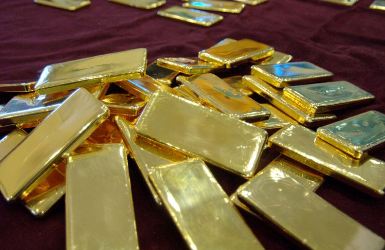Sudan produces 43 tons of gold during the first half of 2015: minister
July 8, 2015 (KHARTOUM) – The Sudanese minister of minerals, Ahmed Mohamed Sadiq Al-Karuri, disclosed that gold production during the first half of this year has reached 43 tons.

He said that gold production during the first half of the year reached 43 tons compared to 31 tons for the same period in the past year, noting they originally planned to produce 38 tons but production has increased to 43 tons.
The minister expected that production would reach unprecedented amounts in all productive sectors particularly the regular sector where several companies have entered the production phase.
He added that his ministry managed to legalize and regulate 85% of the traditional mining sector in coordination with the various states, localities and the stakeholders, saying the remaining 15% would be completed by August.
Al-Karuri stressed that they would pay more attention to reduce the negative impact of mining activities particularly those pertaining to the use of mercury, saying they agreed with several foreign nations including Germany to find alternative to the use of mercury in the traditional mining sector.
According to the ministry of minerals, Sudan produced 71 tons of gold in 2014 with total exports revenues exceeding $1 billion.
The Sudanese government expects to produce 80 tons of gold during 2015 and 100 tons in 2016.
Sudan currently ranks third in gold production behind South Africa and Ghana but aims to land in the first place by 2018.
Gold has become one of Sudan’s largest exports which partially compensated for the loss in oil revenues, which accounted for more than 50% of income until 2011 when South Sudan seceded, thus taking with it most of the country’s oil reserves.
Sudan approved a law to regulate traditional mining by granting licenses and specifying areas to work in to protect them from hazardous conditions and smuggling.
It is believed that traditional mining employs more than a million Sudanese but it is still difficult to obtain credible data.
On the other hand, there are currently 132 companies operating in the regular mining sector in Sudan including 15 foreign companies.
(ST)
